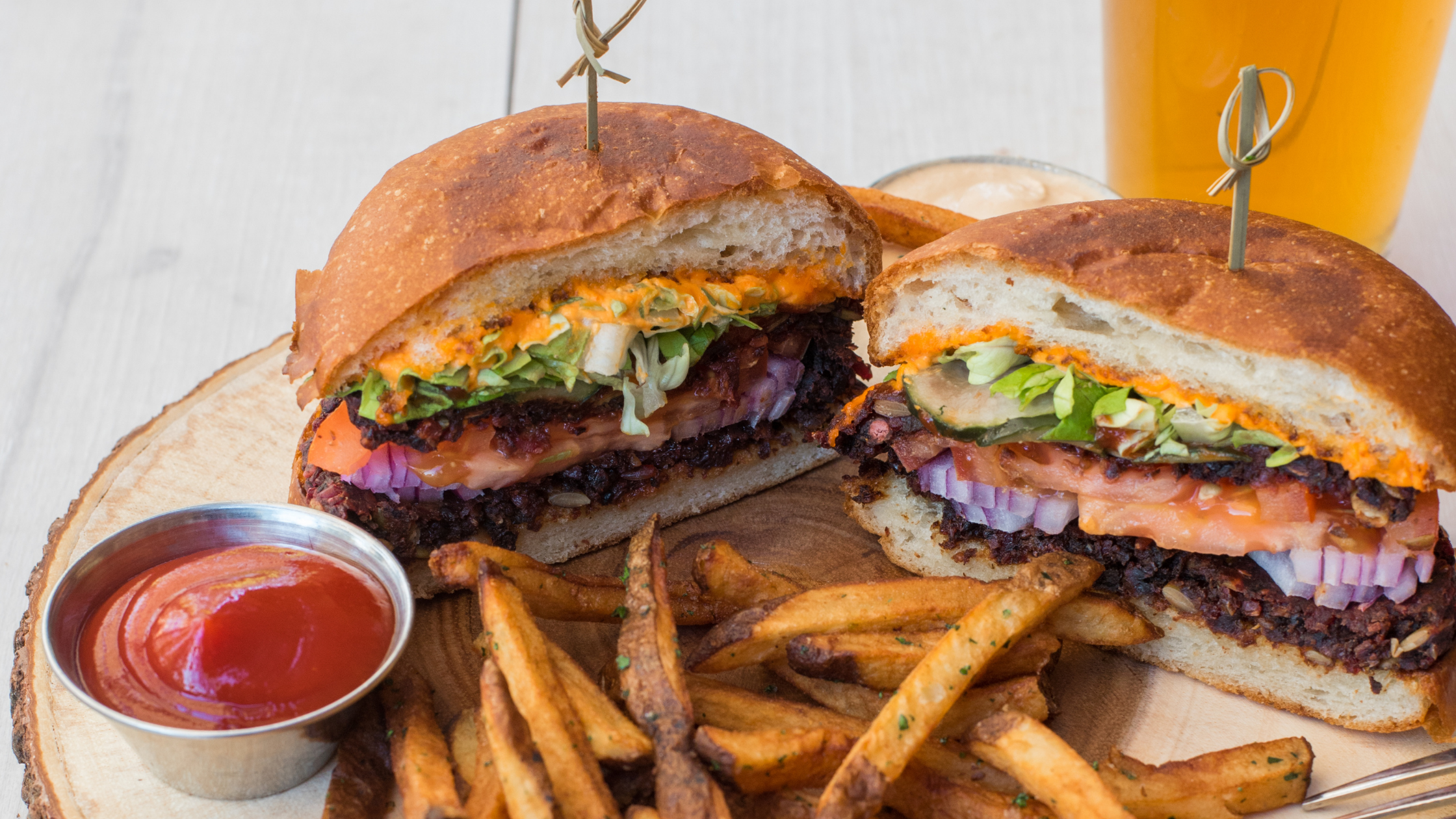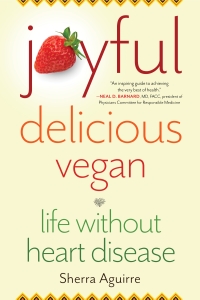Vegan Fast Food: Healthy or Not?
 As a vegan diet and lifestyle gain popularity in America and around the globe, plant-based eaters find themselves with more vegan products at the supermarket, restaurants, and even fast-food chains with versions that taste and look like any other fast food. The number of people choosing to eat less meat, eggs, and dairy is growing so fast that even giants like Burger King and Jack in the Box are cashing in. Although choosing a vegan diet is a step toward better health and less animal cruelty, is all vegan food healthy?
As a vegan diet and lifestyle gain popularity in America and around the globe, plant-based eaters find themselves with more vegan products at the supermarket, restaurants, and even fast-food chains with versions that taste and look like any other fast food. The number of people choosing to eat less meat, eggs, and dairy is growing so fast that even giants like Burger King and Jack in the Box are cashing in. Although choosing a vegan diet is a step toward better health and less animal cruelty, is all vegan food healthy?
Vegan Fast Food
Vegan versions of fast food are plant-based but not necessarily healthy. Examples include French fries and other plant foods fried in oil and have extremely high amounts of salt, fat, and calories, or vegan pizzas loaded with commercially processed vegan cheese on a refined white flour crust and high in sodium and fat. In fact, large amounts of fats, salt, and sugar are used to make them taste just like popular fast foods. However, having a vegan croissant with non-dairy cheese along with plant-based fried sausage for breakfast, a vegan burger and fries for lunch, and then vegan pizza followed by vegan brownies and ice cream for dinner will not help prevent heart disease, diabetes, or obesity. This is a vegan version of the Standard American Diet (SAD), which fuels these and other chronic illnesses.
Vegan Whole Food
A whole food plant-based diet is vegan with minimal or no refined sugars, flours, oils, and other heavily processed foods or ingredients. Importantly, they also avoid artificial fillers, flavors, chemical additives, colors, etc. For example, a loaf of bread in this group would be made of whole-grain flour, unrefined sweeteners, and whole fats in ingredients like seeds or nuts instead of processed oil. This is the most nutritionally complete and healing vegan diet, made up of mostly whole vegetables, fruits, nuts, seeds, whole grains, and legumes with minimal or no processing in an unlimited number of delicious recipes. It’s sometimes called a whole plant-based or plant-strong diet and has the maximum power to protect and improve our health and even reverse many chronic conditions.
Reasons for Choosing a Vegan Diet
For these vegans, the priority is to end needless animal suffering and the significant environmental damage from meat and dairy production. Having a variety of plant-based food options makes it easier for all of us to transition to this lifestyle. And if we don’t fall into the vegan fast-food habit, we will improve our own health in the process!
Those of us who choose plant-based diets for health reasons will certainly want to make sure that in addition to being plant-based, our food is mostly whole, fresh produce, and not full of excess fat, sugar, and salt. There are huge and important benefits to this lifestyle, no matter your reason for choosing it. With this in mind, having more vegan options for people to try eating plant-based is a good thing. The vegan movement is widening its appeal so that people can start from wherever they are in their food journey.
So start wherever you are and grow from there! And know that you will make a big impact on your own health and create a more compassionate, sustainable, and healthier world for our children.


